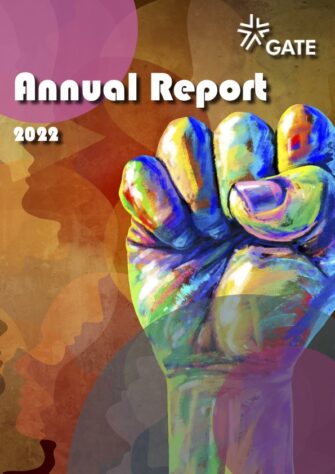Since its inception, GATE has formulated its strategy and objectives in alignment with the needs and priorities of our communities. Ongoing and extensive consultations with community leaders worldwide shape GATE’s work, allowing us to continually adjust to evolving and dynamic external conditions on a global scale.
GATE was initially fiscally sponsored by Astraea Foundation until 2016 when GATE registered in the US as a 501(c)(3) nonprofit organization. Working 100% remotely, GATE has always aimed to achieve representation on our Board of Directors and within our staff that reflects the diversity of our communities across the globe.
In the years that have passed since its founding, GATE has achieved a great deal to further our goal of equality and dignity for all, working alongside our partners, allies and donors across the globe.
- In 2010, we organized a global convening of trans activists in Barcelona.
- In 2015, we supported the creation of the International Trans Fund.
- In 2017, the first UN Trans Advocacy Week was held at the Human Rights Council in Geneva, an ongoing project that GATE continues to organize annually in collaboration with global and regional partners.
- In 2019, GATE founded the International Working Group on Trans Men and HIV, which we continue to coordinate; and after 10 years of leading the international initiative on depathologization, we successfully lobbied for the removal of pathologizing diagnoses for trans people in the WHO International Classification of Diseases (ICD-11), thus paving the way for the introduction of depathologization within the broader human rights framework.
- In 2022, we launched the GATE Learning Hub, an open-access online platform providing free training on organizational development.







